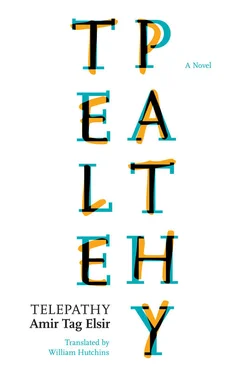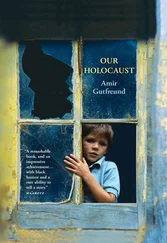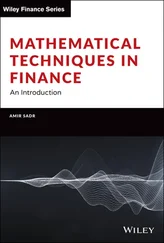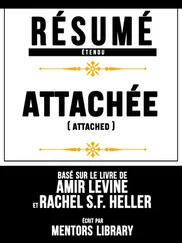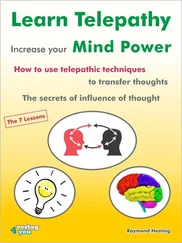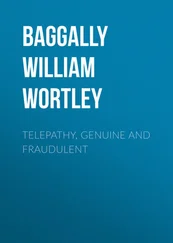Nishan was engrossed in this campaign, which he directed without excitement or passion. Together with members of his team, he strove to sift people’s souls thoroughly to remove envious feelings from his district’s residents forever.
No one would ever envy anyone else there again. If the existence of such a feeling proved inevitable, it should be one-sided — all the residents might be envied by strangers who didn’t and wouldn’t live in the district.
During the past year Nishan had experienced some unusual symptoms that simple people attributed to jinn they said were breeding inside him. Some people who healed with amulets attempted to evict this tribe of jinn but failed. When he became truly dangerous and started making ragdolls packed with explosives and lobbing them at pedestrians in the capital’s congested streets, he was arrested and ended up tied to a worn-out bed in a psychiatric hospital, where he was treated with injections of tranquilizers and electric shock therapy. There he fell in love with a nurse named Yaqutah, who came from a background comparable to his. Her tribe had African roots like his. This nurse lavished care on him, told him about herself, and allowed him to say whatever he wanted to her without interruption. Nishan seemed to make a full recovery and after his release strove to maintain contact with the woman who had befriended him during his delirium and fever. He visited her at the hospital, watched for her on the roads she traversed, and rode public buses with her, conversing with her all the way. She frequently loaned him money that he was unable to refuse.
Now that he was able to love freely, he was considering marriage, the way a normal person would, conducting himself in his neighborhood circumspectly, and spearheading the campaign against envy. Eventually his symptoms returned, though, and he became agitated, suffered from nightmares, heard voices calling him, and searched for means to hurt other people to ensure that he himself would be hurt. At moments when he was thinking clearly, he wept alone in a tumble-down, corrugated metal house, on the streets, or in any dusty nook he found to rest.
The page with the folded corner ended with a clear convergence between real and fictitious elements. I interpreted it the way any reader would: as an SOS tossed into my life’s waters, muddying them.
Night had ended and the morning’s raw materials were in evidence: the sounds of vendors selling bread and milk door-to-door, of school pupils, of car horns, and of strident jackhammers. I retreated to my bedroom, to which I brought insomnia and grief, and tried to avoid thinking — but failed.
At eight a.m. sharp, not feeling sleepy in the slightest, I installed myself at the home of my old friend Abd al-Qawi Jum‘a, who was commonly known as “the Shadow”. He lived in an excellent house, constructed of bricks painted a gleaming gray, in an upscale district called Al-Zahra, near the airport.
Abd al-Qawi the Shadow, who was eighty-nine, was an actor, lyricist, and playwright. He hadn’t aged, and the fountain of his creativity had never stopped gushing. He became famous for stirring songs he composed in critical periods of the nation’s history and for his satirical and lachrymose plays. His drama Straw Blood , which he produced in the mid-1980s at the National Youth Theatre, where it ran for an entire year, was a masterpiece that people have never forgotten. Nine years ago he dramatized my third novel, Well Secret , under that same name. At the time it enjoyed an excellent reception.
I needed to consult the Shadow and draw on the experience of a master and the wisdom of a sheikh regarding the topic that had robbed me of sleep; I knew it would keep me awake nights and prevent me from reading or writing till I resolved it.
I broached the topic of Nishan Hamza Nishan, the man I had unconsciously written up in Hunger’s Hopes , with the Shadow directly, without lengthy preambles. I was obliged to drink his bitter coffee and to share his breakfast, which consisted of two boiled eggs, with no salt or spices. I also had to drink a glass of sour orange juice that I knew for certain would give me indigestion and create acid reflux in my esophagus. I was also forced to participate in his exercises that were designed to strengthen his core abdominals and that he ran through without showing any sign of fatigue or panting while he was stretched out beside me. He thumped me roughly on my belly every time I slacked off because I was tired.
Once we finally finished his obligatory morning routine, as he referred to it, and he allowed me to breathe normally and light a cigarette, the Shadow seemed intrigued by the case. He asked me to repeat my tale in fluent literary language as if it were one of my novels. I didn’t understand why he requested this and couldn’t comply, because for me writing a novel is a type of insanity I cannot perform in the presence of an observer, not even that of a creative genius like the Shadow. In any case, though, I repeated the story.
“You know,” he observed, “this tale reminds me of my old play “An Elderly Demon in the Republican Palace,” which landed me in prison at the end of the 1950s. Writer, do you remember that play?”
Actually I didn’t remember it and had never before heard it mentioned as one of his plays or by another author. This was quite simply because I had not been born then and did not remember it being published in book form.
Without thinking and without sensing that a trap had been set for me, I said to humor an old man’s youthful memory, “Yes. . yes. I remember it most definitely.”
As his eyes sparkled gleefully, he said in a sharp but not offensive tone, “You certainly do remember it because you laughed when you watched it in your mother’s belly. You clapped loudly at the end of the performance.”
I felt a bit embarrassed and wanted to apologize by explaining my conduct as having been caused by preoccupation with Nishan and by my eagerness to hear his take on this conundrum. The Shadow, however, did not allow me to do this. He waved his hand before my face, just as I was about to apologize, and continued, “It’s not your fault. . That great play, which was the first text the dictatorship brazenly criticized throughout the entire country, which shook people’s confidence in their rulers, and which sparked a vanguard of street protests and even unrest in government circles, was one I absolutely did not write myself. Matthew, an Anglican priest, sent it to me in twenty-six consecutive dreams. I would awake each day and write down what had come to me in the dream without addition or deletion. Don’t be surprised that Nishan has sent you his story and that he — not you — fiddled with some of its details. Do you understand now that this matter is ordinary, not astonishing?”
I suddenly felt that the Shadow had moved beyond the vigor of youth and graduated to the crustiness of old age. I was about to express my opinion when to my surprise I sensed that even if he had just made up the tale, the circumstances were parallel. As I mentioned, I had never heard of that play and — now that I think of it — am sure I had never heard of Father Matthew either. I don’t know whether a real person was imitating a real situation or whether this was a playwright’s invention.
I asked, “What’s the relationship between the stories of Matthew and of Nishan Hamza Nishan?”
I absolutely hadn’t recorded dreams and had been conscious throughout my creative hysteria, observing my normal rituals — both admirable and vile — while I wrote Hunger’s Hopes . I have noted that it flowed forth with no impediment worth mentioning. Perhaps that was the nature of the similarity between the dream Abd al-Qawi Jum‘a could remember and the forgotten dream that insinuated itself into my mind while I was writing.
Читать дальше
